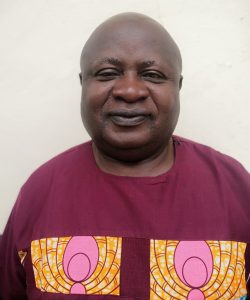Interview with Professor Samuel Wanji (Senior Fellowship Plus)
We asked EDCTP Senior Fellow Plus Professor Samuel Wanji from University of Buea, Cameroon, how EDCTP funding is helping advance his research into the neglected group of filarial diseases (a disabling worm infection), and how it’s helping to build capacity in infectious diseases in Africa in general.
Professor Wanji, what inspired you to pursue a career in science?
There is a combination of destiny and love for science. At secondary school I had a strong affinity for mathematics and biology subjects. And on top of that, my senior brother, who was my role model, inspired me greatly to pursue a scientific discipline.
Why did you apply for an EDCTP Senior Fellowship Plus?
Before I applied for an EDCTP Fellowship, I had received research grants from several funding agencies, including the European Commission, the Bill & Melinda Gates Foundation, WHO/TDR, the German Research Foundation and the German Ministry of Education and Research, the African programme for Onchocerciasis Control, Wellcome Trust, the British Medical Research Council, and Drugs for Neglected Disease initiative. The funds received from these funding agencies enabled me to develop a very strong basis in Neglected Tropical Disease research, covering the aspects of epidemiology, vector biology & transmission, and development of animal models for preclinical research including drug screening and development, diagnosis, and elucidation of pathogenesis mechanisms.
I had very limited experience in clinical trials involving human subjects. EDCTP offered me an opportunity to bridge this gap in my research career. The EDCTP Senior Fellowship Plus enables me to fulfil my primary objective: to develop a strong clinical trial landscape at the University of Buea by developing the skills of students and junior scientists in this discipline.
How is this Senior Fellowship Plus embedded in the broader efforts to reduce the burden of filarial worms infections?
One of the major obstacles for the elimination of filarial diseases (Onchocerciasis, Lymphatic filariases, Loiasis and Mansonellosis) remains the lack of safe, effective and affordable drugs that can kill the adults worms in humans and permanently prevent the production of microfilariae. Capacity building in the field of clinical trials is the natural step to take if one wants to significantly reduce the burden of filarial infections and eventually eliminate some of them.
How many students and junior researchers are/were you able to mentor as part of your fellowship, and where are they now?
Apart from my research work, this Fellowship supports training and mentoring junior researchers. Together with the Trainee Fellow, Dr Hamit Mahamat Mahamat Alio of University of N’Djaména, Chad, we are training four postdoctoral scientists, four PhD students (including one from Chad), and eight MSc students (including three from Chad). We also envisage to capacitate scientists working in this project on specific skills in Good clinical practice, Good laboratory practice, ethics in biomedical research, social science techniques, data management and analysis plans, and clinical trial monitoring.
“My future career goals are to develop a strong clinical research platform that can be used by scientists from universities, research institutes and pharmaceutical companies to test drugs for humans.”
Professor Samuel Wanji, University of Buea, Cameroon
How is this Senior Fellowship Plus helping you to progress to a position of leadership locally, regionally, and globally?
We are working towards the development of a clinical trial platform at the University of Buea (human resources development, infrastructure and logistics). This will constitute a strong basis of translational clinical research. This platform will eventually serve beyond the neglected tropical diseases to cover drug testing and development for several other infectious diseases of poverty. We envisage that through this Senior Fellowship Plus, we will develop a strong network of scientists working in clinical trials for infectious diseases of poverty in central Africa sub-region and beyond.
What would you like your legacy to be?
I hope that people will remember me for my contributions to the fight against Neglected Tropical Diseases from basic to translational research, with development of new drugs and new diagnostic tools, and eventually vaccines, against parasitic infections.

